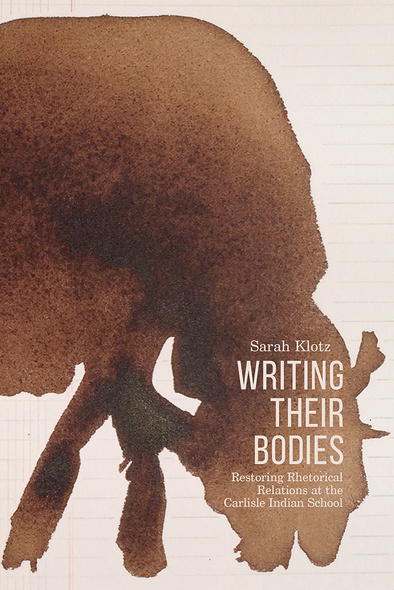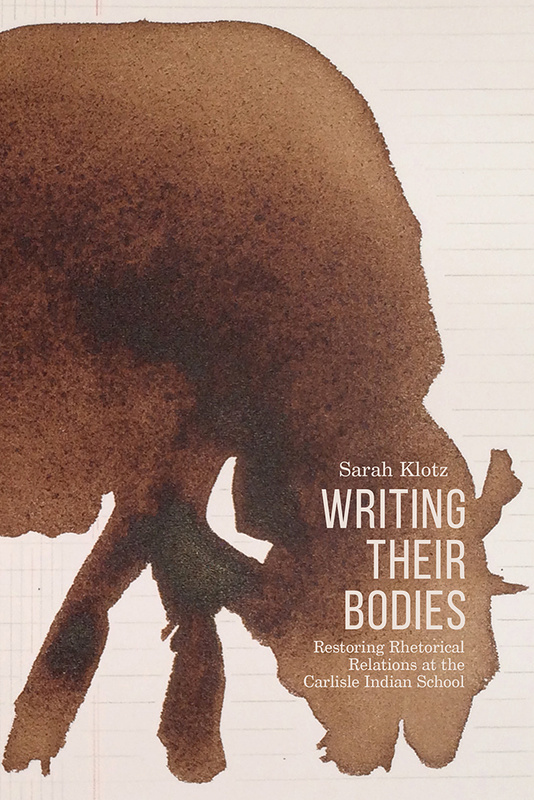Our shopping cart is currently down. To place an order, please contact our distributor, UTP Distribution, directly at utpbooks@utpress.utoronto.ca.
Writing Their Bodies
Restoring Rhetorical Relations at the Carlisle Indian School
By Sarah Klotz
Utah State University Press
Between 1879 and 1918, the Carlisle Indian Industrial School housed over 10,000 students and served as a prototype for boarding schools on and off reservations across the continent. Writing Their Bodies analyzes pedagogical philosophies and curricular materials through the perspective of written and visual student texts created during the school’s first three-year term. Using archival and decolonizing methodologies, Sarah Klotz historicizes remedial literacy education and proposes new ways of reading Indigenous rhetorics to expand what we know about the Native American textual tradition.
This approach tracks the relationship between curriculum and resistance and enumerates an anti-assimilationist methodology for teachers and scholars of writing in contemporary classrooms. From the Carlisle archive emerges the concept of a rhetoric of relations, a set of Native American communicative practices that circulates in processes of intercultural interpretation and world-making. Klotz explores how embodied and material practices allowed Indigenous rhetors to maintain their cultural identities in the off-reservation boarding school system and critiques the settler fantasy of benevolence that propels assimilationist models of English education.
Writing Their Bodies moves beyond language and literacy education where educators standardize and limit their students’ means of communication and describes the extraordinary expressive repositories that Indigenous rhetors draw upon to survive, persist, and build futures in colonial institutions of education.
This approach tracks the relationship between curriculum and resistance and enumerates an anti-assimilationist methodology for teachers and scholars of writing in contemporary classrooms. From the Carlisle archive emerges the concept of a rhetoric of relations, a set of Native American communicative practices that circulates in processes of intercultural interpretation and world-making. Klotz explores how embodied and material practices allowed Indigenous rhetors to maintain their cultural identities in the off-reservation boarding school system and critiques the settler fantasy of benevolence that propels assimilationist models of English education.
Writing Their Bodies moves beyond language and literacy education where educators standardize and limit their students’ means of communication and describes the extraordinary expressive repositories that Indigenous rhetors draw upon to survive, persist, and build futures in colonial institutions of education.
‘Sarah Klotz makes extremely compelling and new critical arguments about the significant yet under-studied embodied and multimodal rhetorical practices of Native students at Carlisle.’
—Jessica Enoch, University of Maryland
‘An important intervention into the field of Indian boarding school histories . . . and a significant contribution to the field, touching on adjacent fields under the larger Native American and Indigenous studies umbrella.’
—Stephanie Fitzgerald, Arizona State University
Sarah Klotz is assistant professor of English at the College of the Holy Cross. Her research interests explore the role of literacy in American nation-building, using rhetorical theory as a lens to understand race and racialization in the United States. She received the Emergent Researcher Award from the Conference on College Composition and Communication in 2016.





